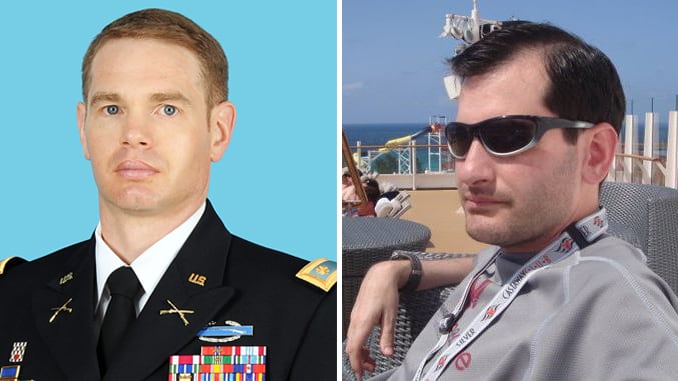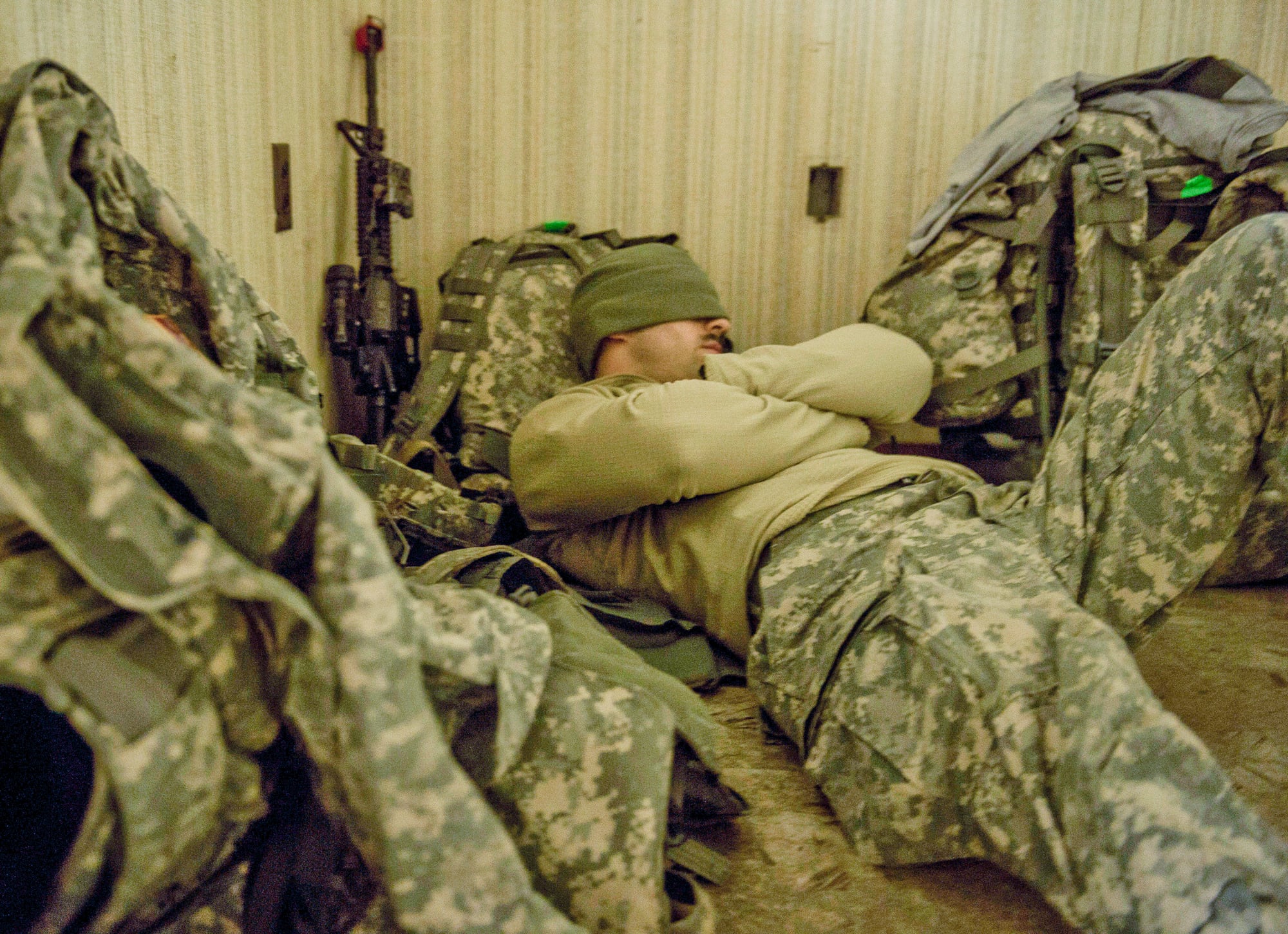Editor's note: The following is an opinion piece. The writers are not employed by Military Times and the views expressed here do not necessarily represent those of Military Times or its editorial staff.
The use of alcohol is known to degrade mental capacity and impair decision-making. The military prohibits its use during duty hours for common-sense reasons, and does the same with other substances that can degrade readiness. But when it comes to other actions that can do similar damage, or worse, we promote them with reverence, pretending they are strengths.
Studies show sleep deprivation offers effects equal to drinking alcohol, and continued lack of sleep has the potential of being even more deadly. We would never allow a drunken soldier to lead an ambush, so why do we consider it acceptable or even admirable to send one with lack of sleep into life-threatening situations?
The Army's culture of sleep deprivation begins during basic training, although the Center for Initial Military Training has taken steps recently to incorporate additional sleep into the platform. It continues through the first unit of assignment, where we interrupt sleep with training and other duties until going without rest becomes ingrained in our soldiers.
This is akin to assuming that service members can build up enough alcohol tolerance that they will be safe to drive regardless of how much they have to drink. The logic is flawed.
Unfortunately, the Army has yet to grasp how important sleep is to mission accomplishment, decision-making, general health, physical fitness, and the whole host of other activities.
As noted in the Army's November 2015 Health of the Force report, only 15 percent of the active-duty Army meets all national sleep standards, and an incredible 55 percent failed to meet any of the defined targets. The report found 10 percent of soldiers have a diagnosed sleep disorder, almost a third operate on five or less hours of sleep per night, and half have a "clinically significant sleep problem."
SURVEY SAYS …
The Army recognizes this problem and is working to address sleep management issues via its Performance Triad program, marking sleep as one of three focus areas alongside physical activity and nutrition. But a survey we conducted shows the program may suffer from a significant lack of awareness.
Between June and July, we received 221 responses from active-duty and reserve-component soldiers, with nearly 41 percent supporting the Triad's core concepts. But nearly 42 percent had "never heard of it," and almost 18 percent didn't agree with it, including more than 20 percent of active-duty soldiers.
As Pat Wadors, Linkedin's Chief Human Resource Officer, explains in a 2015 piece at The Huffington Post:

Maj. Jeffrey Jager, left, and former Marine Corps Sgt. Aaron Kennedy.
Photo Credit: Submitted photos
HOW TO FIX IT
Our recommendation to counter force-wide sleep deprivation is two-fold. First, increase awareness efforts. Senior leaders like Sergeant Major of the Army Daniel Dailey frequently highlight important topics and changes to policy, such as rolled-up sleeves, black socks for PT, earbuds in the gym, and a review of the body composition program – the Performance Triad should be part of that mix.
Second, mandate the use of wearable sleep trackers and implement policies to prevent sleep-deprived individuals from making decisions and leading units. We expect this idea will be met with derision by some Soldiers, but we remind skeptics that a soldier found drunk on duty likely faces punishment under the Uniform Code of Military Justice, whereas one functioning without proper sleep is allowed to function at a similar impaired capacity. A simple tweak to existing regulations to add "sleep tracker" into passages that involve pedometers and other fitness tools would highlight that the Army is starting to take sleep seriously.
Other helpful policy changes, highlighted in the Health of the Force report, include setting conditions to allow soldiers to get proper sleep and integrating "sleep science into mission planning." Average sleep could even be included in the promotion and evaluation process, which already broadly considers nutrition and physical activity through the Army Physical Fitness Test.
Within the aviation community, mandatory rest has long been the norm, with maximum work and minimum rest periods. Shouldn't our other military occupational specialties be viewed equally?
Maj. Jeff Jager is an Infantry and Foreign Area Officer who is currently serving as the Army Training and Doctrine Command Liaison Officer to Turkey. He graduated from the United States Military Academy in 2000 and has completed master's degrees at Georgetown University and the Turkish Army War College.
Former Marine Corps Sgt. Aaron Kennedy deployed twice to the Middle East and later served as an intelligence systems instructor at the Marine Air-Ground Task Force Staff Training Program in Quantico, Virginia. The views expressed are those of the authors and not necessarily the positions of the Army, Defense Department or any federal agency.




